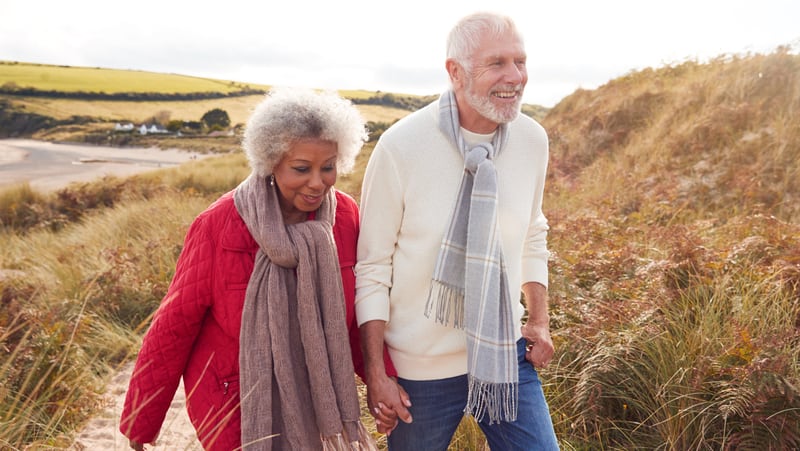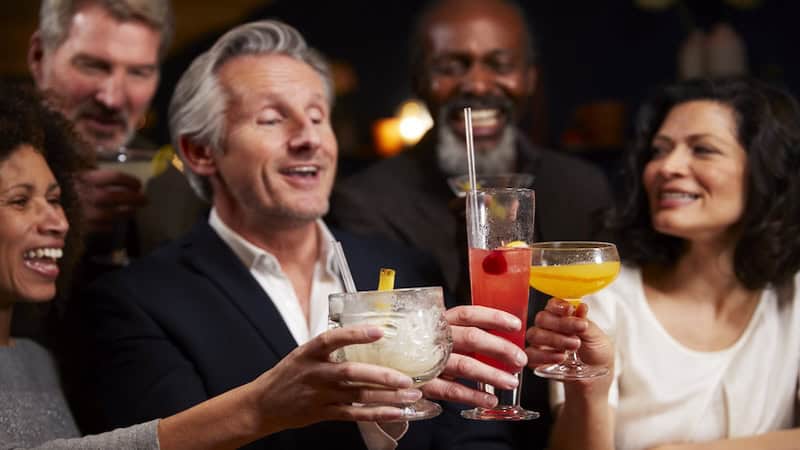Boomer Q&A with Dan Buettner
What is the formula for a longer, happier life?

These tips from longevity expert Dan Buettner offer insights into how you can live a long and happy life include napping, relaxing, happy hour, companions to avoid, and more.
Boomer staff writer Daniel Jones caught up with explorer Dan Buettner, the “Live Longer, Better” expert who has traveled the globe uncovering the best strategies for longevity, wellness, and happiness.
An internationally recognized researcher, speaker, and best-selling author, Buettner was in Richmond to talk to a Northwestern Mutual client reception at Goochland’s Dover Hall Estate.
Here are excerpts from the interview.
Tips from longevity expert Dan Buettner
Q: What about the “Blue Zones” – your term for regions where people have the longest, disability-free life expectancy – first attracted your attention?
A: I did a series of 16 expeditions that sought to unravel ancient mysteries … We stumbled upon an interesting mystery in the year 2000 in Okinawa, Japan, finding people who’ve lived the longest, healthiest life … And I knew enough about how genes and lifestyle interacted to know that the answer to longevity did not lie in genes; it lay in something they were doing … I came back, did some more research and I proposed a story for National Geographic magazine to see if there were other places like Okinawa.
Q: What were the similarites between these Blue Zones?
A: On average, 90 percent of their dietary intake is plant-based. Beans are the cornerstones of every longevity diet in the world. They’re eating a high-carb diet. They have a vocabulary for purpose. They live in environments where it’s easy to walk, in almost all cases. They tend to belong to a faith-based community in various disciplines. They were either born into, or they practically surround themselves with, happy, healthy people.
Q: You mentioned “purpose.” How do these cultures define it?
A: They have jobs, but way more important than their job success or their financial status in these places is family … Likewise, there also tends to be a greater zeal for the community. They have a commitment to that community; it’s where they retire.
Q: What are [their] thoughts on stress?
A: We see it in all blue zones. They have daily rituals that reduce stress. Prayer works pretty well, napping works well, but I actually think happy hour with a drink works, too. Alcohol actually lowers cortisol and counteracts [the negative effects of stress]. Happy hour tends to be an event you do with friends, so that’s another natural stress reliever. In four of the five blue zones, happy hour – or some version of it – is a daily ritual … The best you can do is set up your environment so you’re more likely to be happy. And if happiness were a cake recipe, the key ingredients are: marry the right person; you need money for food, shelter, health care, some mobility and some education, but after that, money doesn’t really return much; physical activity, too … If you want to optimize your happiness and your life expectancy, you should be shooting for 8-9.5 hours of sleep a day … [And it helps] knowing your sense of purpose and belonging to an organization where you can volunteer, where you can put that purpose to work.
Q: You’re an advocate of travel. What are some of the benefits?
A: I think travel is a great thing for older people. I hate to sum it up in a clichéd way, but if you don’t use it, you lose it. To travel – planning for a trip – takes all kinds of cognitive resources, the energy to get up and go. Usually when you land someplace, you’re not driven everywhere. You’re walking, you’re discovering, sometimes learning a new language. You have to deal with the whole smorgasbord of logistics. I think it puts our life in perspective. I think travel is a key ingredient to a long, vital life.
Q: What else would you encourage boomers to do?
A: I would say take stock in your social core, your three to five best friends … One of the most authentic and long-lasting things you can do to live longer is build a social network [of people] who eat healthy – that means mostly vegetarian – whose idea of recreation is something active. So when you do something with them, you’re going to be out moving, gardening, playing tennis, biking, whatever. That’s their idea of fun. And these are people who care about you on a bad day …
Boomer review of ‘Mind Full: Unwreck Your Head, De-stress Your Life’
Secondly, I’d make a rule for yourself – four foods you should never bring into your house. These are the foods that are most highly correlated with cancer and obesity: 1) processed meats, 2) salty snacks, except for nuts, 3) packaged sweets and 4) sugar-sweetened sodas. I would never tell you not to eat all those foods. In fact, if they bring you joy, you should eat them. But the simple act of saying, “I just won’t bring them into my home” will cut out 60-70 percent of those foods we know are bad. And then I would say: Stock up on nuts. Every household should have your favorite fruit in it. I think in general having 100 percent whole-wheat bread around is a good thing. If you can tolerate oatmeal for breakfast, there’s no better breakfast. And sweet potatoes are the universal longevity food.
Q: Should people, in your experience, put off things they enjoy – maybe that cigar, every once in a while – for the sake of their health?
A: If it’s short-term enjoyment you’re after, yes, maybe you should smoke that cigar … But most of the things that yield longevity also yield long-term happiness: the fellowship of a good friend, which makes us all feel good, for example … We know that nappers live longer than non-nappers … We are a third less likely to die of a heart attack if we’re napping 20-30 minutes a day five days a week.
Q: You talk a lot about lifestyle and life habits, but how important are one’s mental habits?
A: People who cultivate gratefulness are more productive; they tend to have more friends and less stress in their life. But again, I think it boils down to the friends they hang out with. We know that unhappiness and loneliness are contagious. If you hang out with people and sit around and bitch, that feeling is contagious as well. So I think it comes down to who you make friends with. Hang out with grateful friends.
This interview has been republished from a 2015 interview with Daniel Jones, who was staff writer for Boomer at the time.


